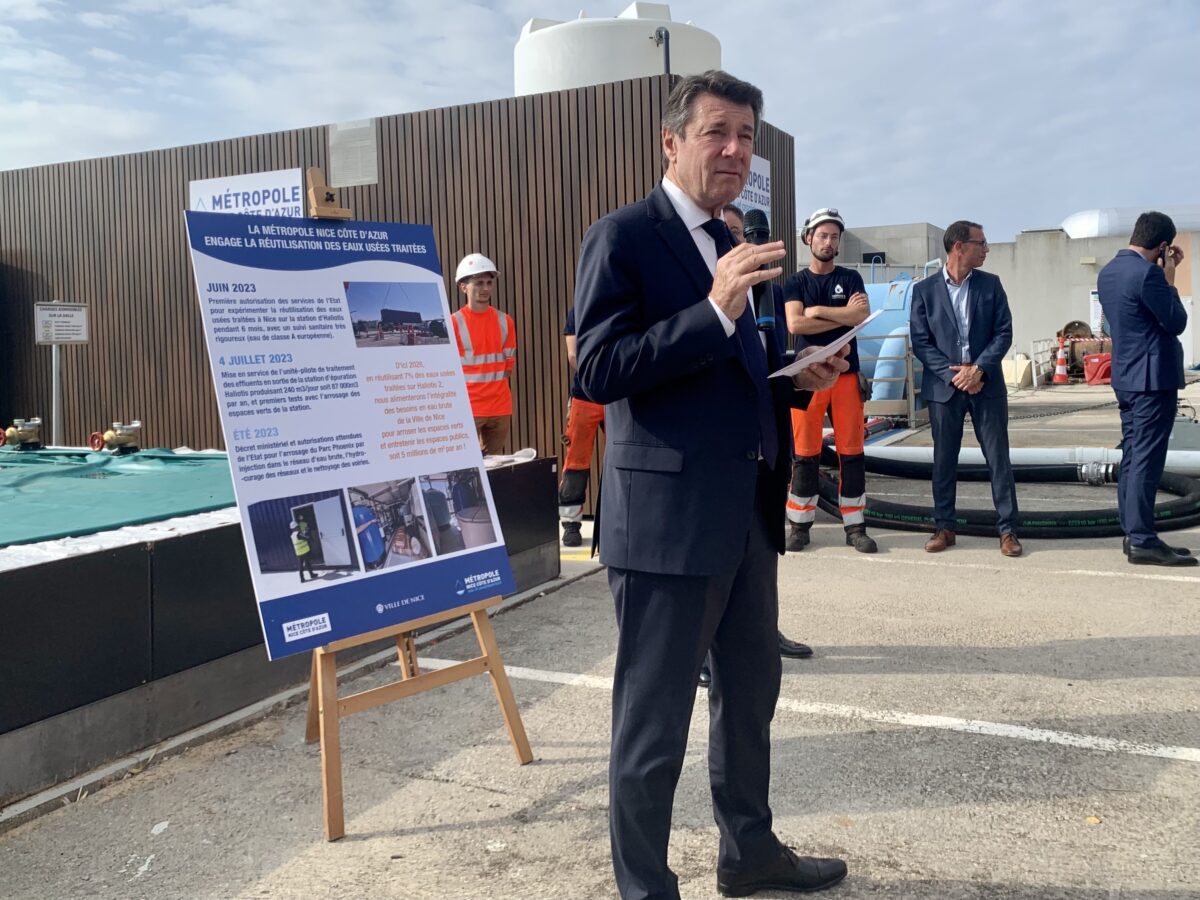The municipality has obtained the State’s approval to reuse its treated wastewater for irrigation and cleaning. Christian Estrosi attended the commissioning of this project, at the Haliotis treatment plant, on July 4.
“It was about time!” rejoiced Christian Estrosi, Mayor of Nice. The president of the Nice Côte d’Azur Metropolis had sent a letter to Elisabeth Borne in September 2022. The purpose of his request: to be able to reuse treated wastewater for watering and cleaning the roads. The green light was given in June. The time has come for action.
At the Haliotis site, a pilot unit now allows 240 m3 of water to be treated per day, totaling 87,000 m3 per year. It is the first step before scaling up thanks to the Haliotis 2 project, the largest treatment plant in Europe. This site’s modernization aims to reach 5 million m3 of treated wastewater per year, which is sixty times what this first unit produces.
Thus, by reusing 7% of this water, Nice will be able to meet all its irrigation and street maintenance needs, “without needing to draw on natural resources”. At the end of the treatment cycle, this water is certified as European class A, which guarantees the highest level of health quality. The disinfection of the water using UV lamps and chlorination “is not harmful for watering plants,” assures Simon Edouard, commercial director of Nomad’o.
Parc Phoenix Soon to Be Irrigated with Wastewater
The treated wastewater can currently be used only for watering the green spaces at the Haliotis site. For each use of this water, a file must be submitted and approved by the competent authority, the Departmental Directorate of Territories and the Sea. Until now, the treated wastewater was discharged into the sea as it was considered non-potable.
By autumn 2023, the municipality hopes to have obtained approval for this system to be expanded. It would allow irrigation of Parc Phoenix and other green spaces as well as street cleaning and hydro-cleaning of networks. This technique deeply cleans pipes using a high-pressure jet system.
Nice to Catch Up on France’s Lag
France reuses only 0.6% of its treated wastewater, placing it far behind its Mediterranean neighbors. Italy is at 7%, and Spain reaches 14%. The leader in this area is Israel, boasting a score of 80% in reused treated wastewater.
So why is France lagging? “There are probably more certification bodies than in other European countries. France is known for being extremely finicky, technocratic,” suggests the mayor of Nice.
“I’ve fought to shift the lines on this common-sense issue,” shares the Nice mayor. Proud of his environmental policy, he adds: “Just because we’re ahead of others doesn’t mean we should be penalized.” This advance is possible thanks to a distinct advantage: Nice has a separate raw water network from the potable water network. “We’re the only ones with a raw water network,” he emphasizes.
“Zero Inconvenience”
Practically, this particularity allows treated wastewater, which cannot be allowed into the potable water network, to be injected into the raw water network. These channels spread across the city over hundreds of kilometers.
Christian Estrosi notes that, as a result, the City avoids transporting this water by tanker truck, which means less pollution. A solution with “zero inconvenience,” he boasts. In Cannes, the mayor David Lisnard has made wastewater reuse his main strategy. Having also received state approval, he reuses filtered wastewater, transporting it to necessary locations by truck.


